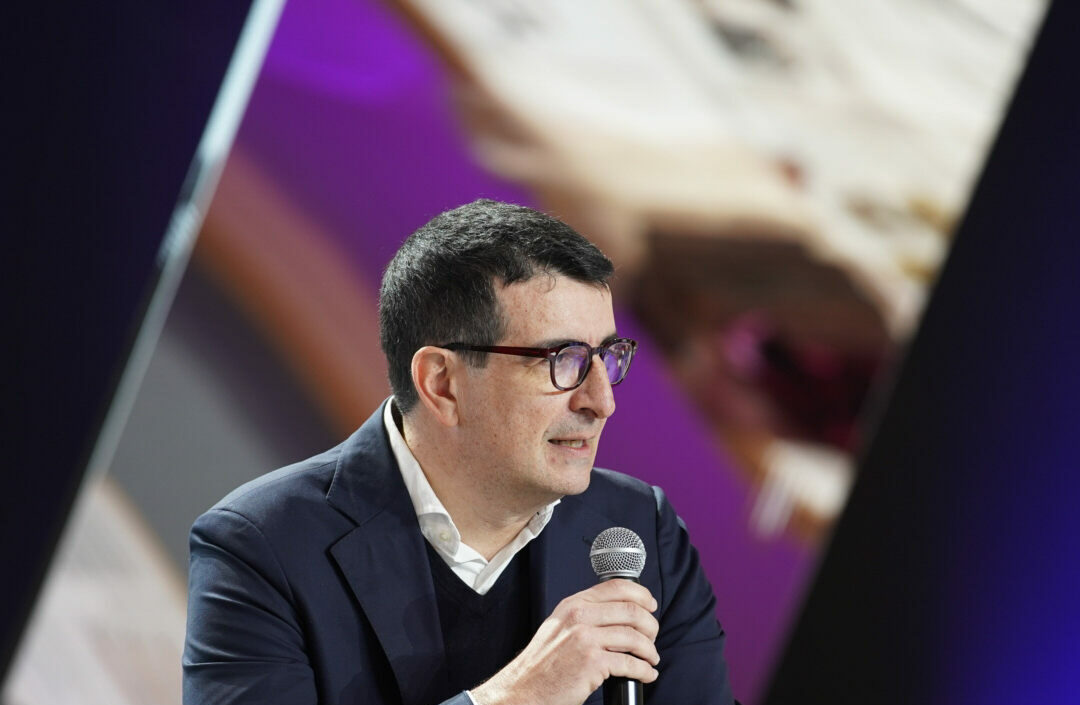Arsutoria School’s resonance in the fashion and footwear sector is not only measured through its history and academic prestige, but also in its tangible impact and open dialogue with leading companies in the sector.
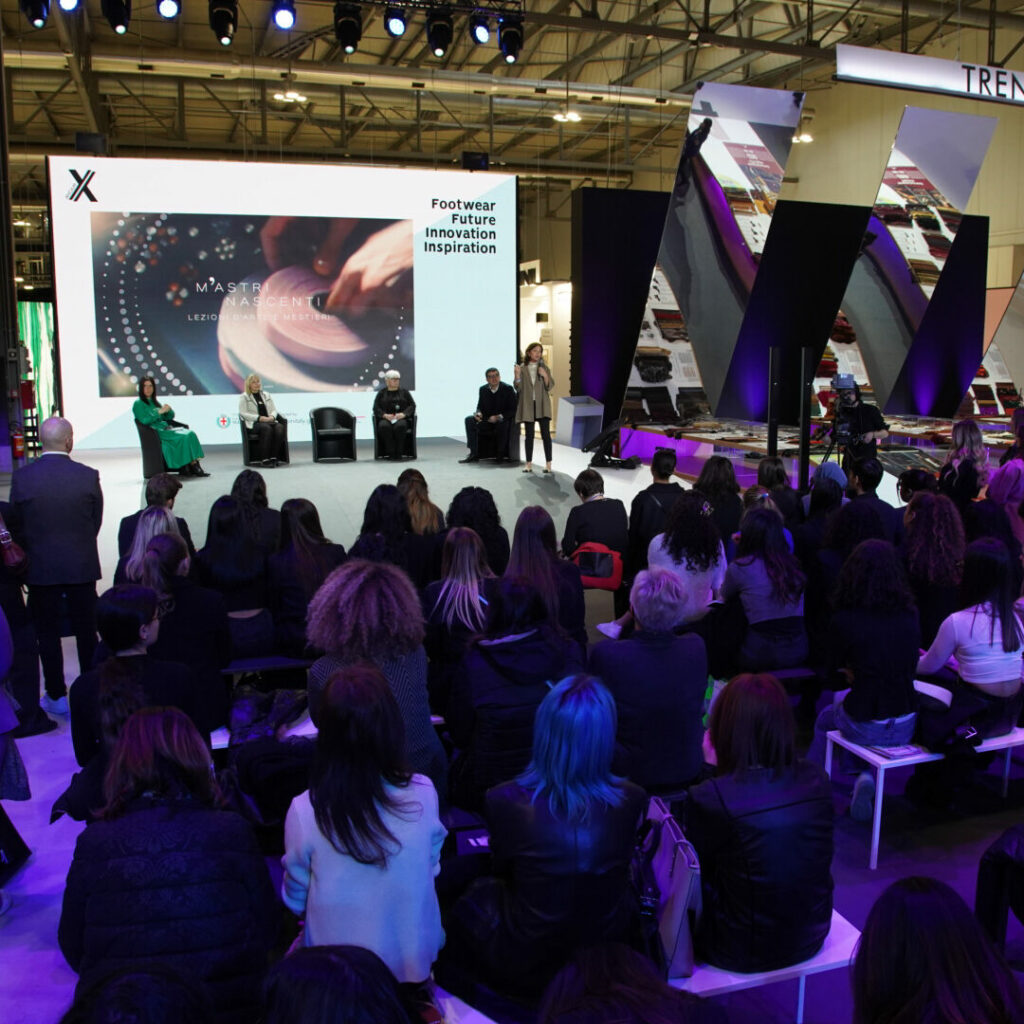
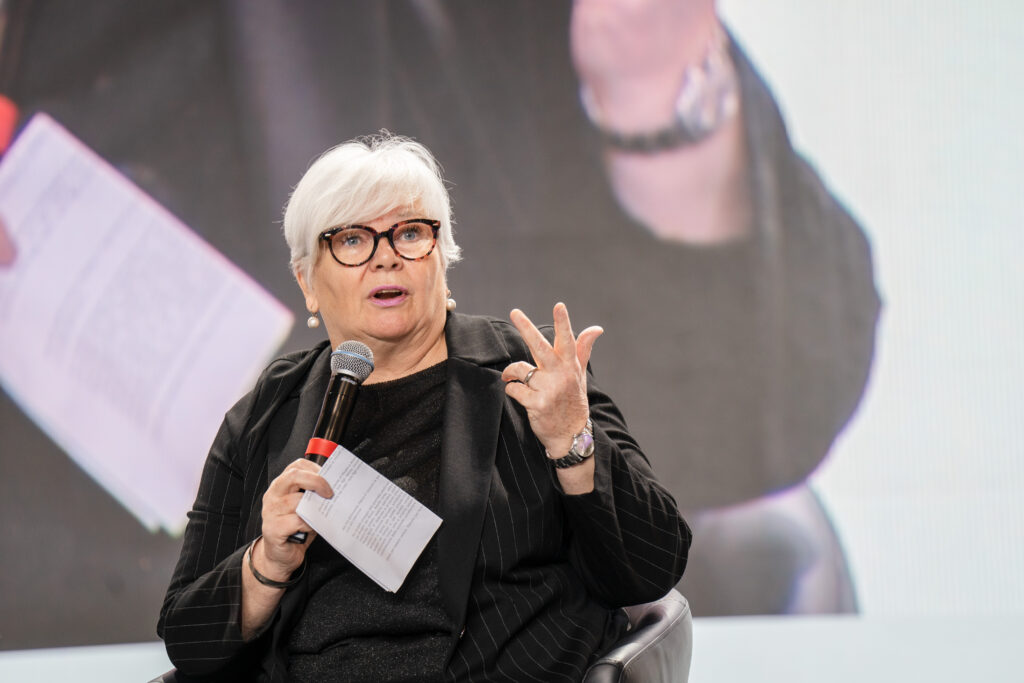
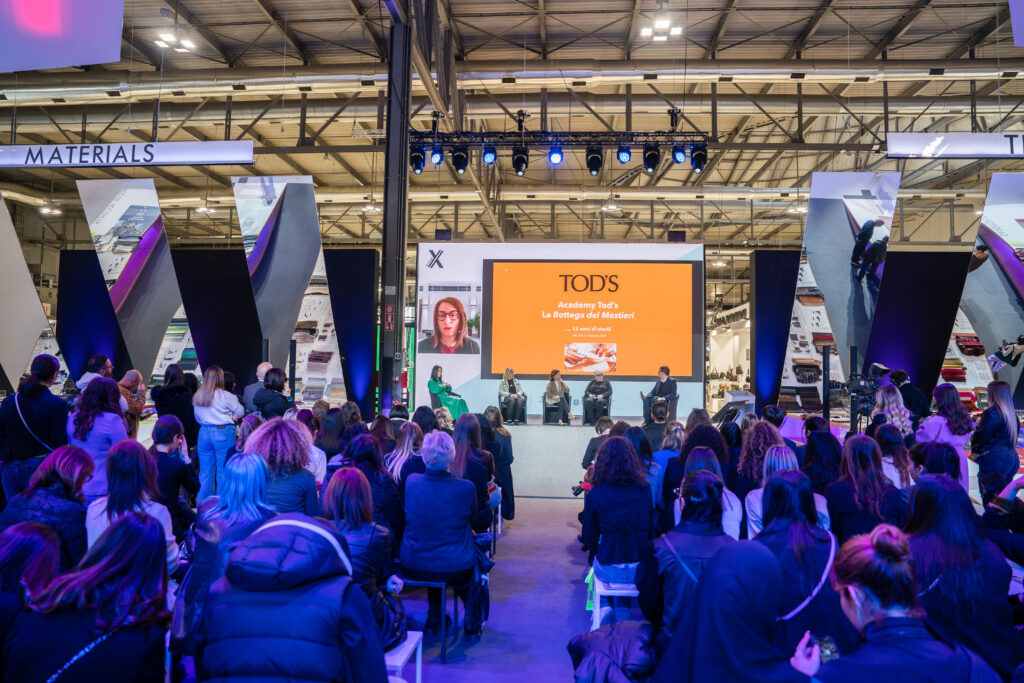
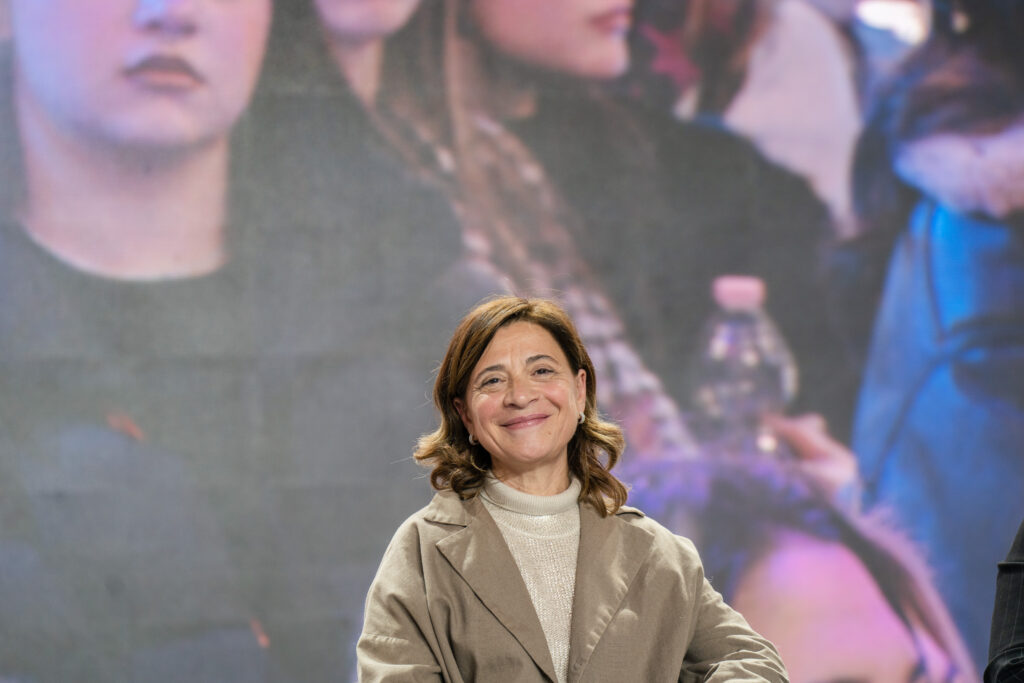
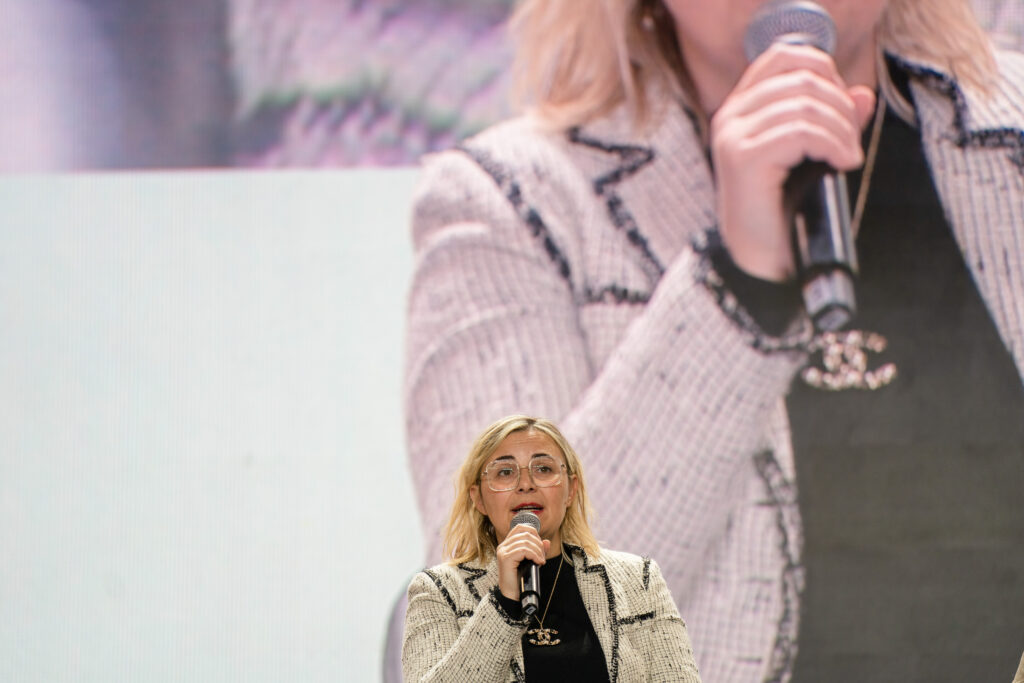
Arsutoria School has marked another significant milestone in its commitment to be the first Workshop school in direct contact with companies, co-organizing together with Assocalzaturifici the “Perspectives for education and training” event, at MICAM X 2024. This important round table led to a dialogue on the future of the industry, highlighting the challenges and opportunities that characterize training in the footwear sector.
The event, moderated by Matteo Pasca Director of Arsutoria School and Alice Marcato of Politecnico Calzaturiero del Veneto, represented an important opportunity for discussion between field experts, leading companies and training institutes. Among those present, students from well-known institutions such as Instituto Dudovich in Milan, Isabella D’Este Caracciolo School and Bernocchi Institute in Legnano, were able to interact directly with key figures in the industry.
The event opened up with the Giovanna Ceolini’s introduction, President of Assocalzaturifici and Micam as well as sole administrator of Parabiago Collezioni Srl. She underlined the importance of generational turnover in technical roles, inviting young people to visit the companies to discover the passion that drives the sector. Her vision laid the foundations for a broader discussion on the need for training that can embrace both tradition and innovation of “made in Italy”.
Rossana Leoni of Manufactures De Mode Italia (MDM) then highlighted the value of artisanal know-how, describing how the M’Astri Nascenti project, in collaboration with Arsutoria School , aims at safeguarding and transmitting this precious knowledge. This approach is shared by the companies in the MDM footwear supply chain such as Roveda, Nillab Manifatture Italiane and Calzaturificio Gensi, who have built the training courses together with Arsutoria School, for the training of future luxury artisans. In particular, Valentina De Vita, HR director of Roveda, spoke about the experience of the historic Parabiago company which has been producing collections for some of the most important luxury fashion houses for years. The discussion has been enriched by two young professionals who gave their testimony on the path of onboarding in the company’s technical roles.
Simona Pelosi, HR Manager of Tod’s SPA, illustrated the commitment of a group that today has around 5,000 employees worldwide. She told her experience, began 12 years ago in the Tod’s Group with the company academy project called Bottega. Simona underlined the challenges in talent acquisition processes, highlighting how the connection with prestigious training institutes is core to welcome and smooth the way for talents into the luxury sector.
Questions from the public further animated the event, with questions ranging from companies’ research for skills to the future challenges of the sector.
What characteristics are companies looking for when hiring?
A student from Instituto Dudovich Milano asked the question. Simona Pelosi responded by emphasizing the importance of soft skills, such as teamwork, passion and problem-solving.
Which profiles are available, within your company, for young people who graduate from a Made in Italy fashion vocational/professional school?
Another student questioned the future of young emerging professionals, specifically asking what opportunities are available for those who have undertaken a training course focused on “Made in Italy” and fashion. The response from Simona Pelosi of Tod’s SPA was enlightening: “the technical profiles we are looking for are many, from design to production, including all organizational coordination roles supporting product development processes”.
This diverse professional panorama highlights the need for an in-depth analysis of personal atitudes to place everyone in the most suitable job, underlining the importance of a training path that is both practical and personalized.
What are the challenges of the future of the footwear sector?
Another question, raised by a student from the Instituto Bernocchi di Legnano, put the spotlight on the future challenges awaiting the footwear sector. Valentina de Vita – HR Director Roveda responded by highlighting the urgent need for fresh talent and a projection towards a sustainable future, not only in terms of environmental certifications and respect for rights , but also in the continuous search for a balance between quality and sustainability. This combination represents one of the most significant challenges for companies that aspire to maintain Italian savoir-faire in the global context.
Talent search
Arsutoria School is dedicated to supporting companies and organizations in the footwear and leather goods sector, aiming at developing required skills to excel in the global market.

